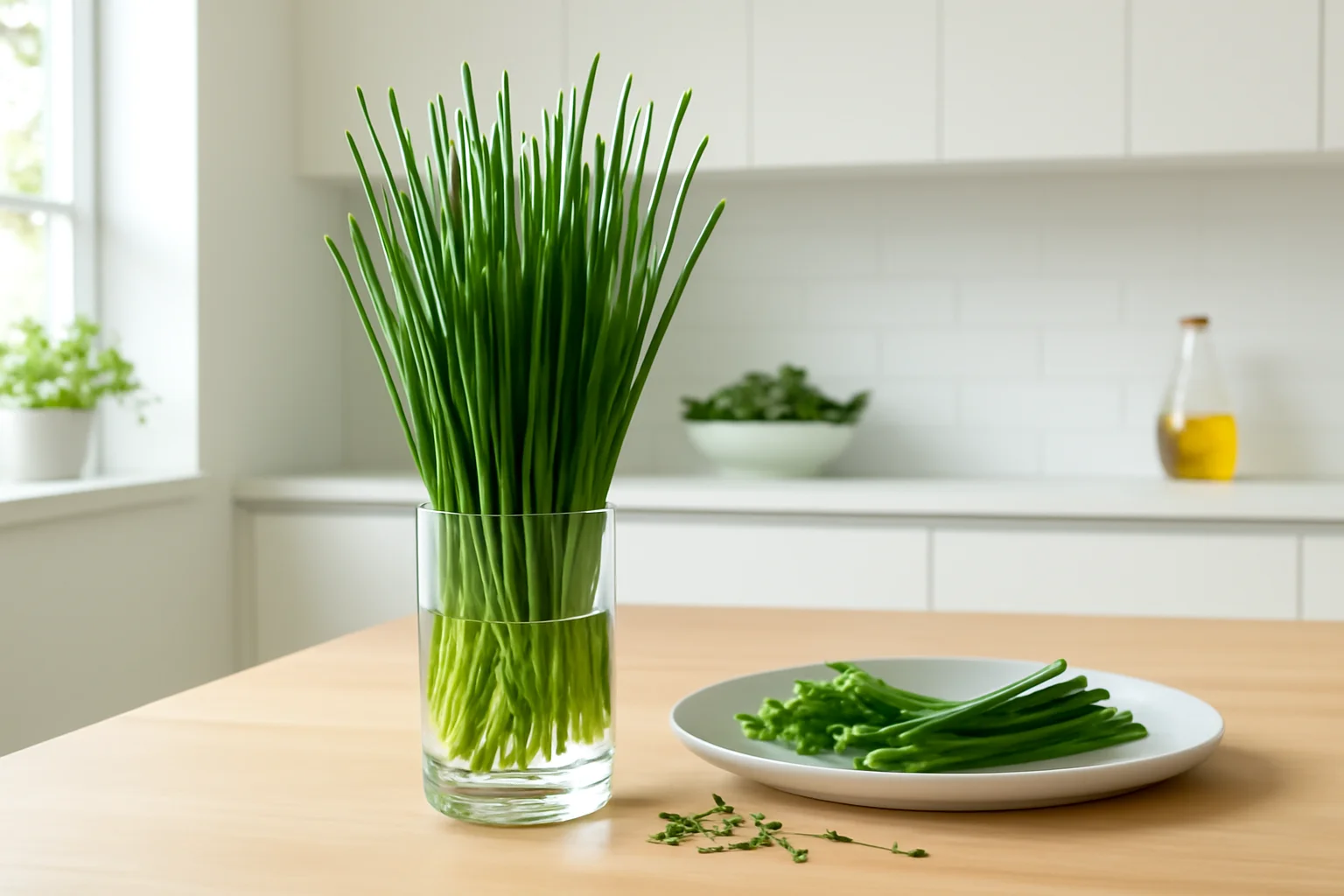
The Beneficial Effects of Chives on Our Health and Kitchen
The chives, also known as scallions, are not only a delicious herb but also have numerous beneficial effects. This fine, green herb is particularly popular in kitchens, where it enhances the colors and flavors of dishes. Chives serve not only to elevate flavors but are also a rich source of nutrients that can contribute to maintaining health. Some may not even realize that this small, green plant is packed with vitamins, minerals, and antioxidants that can help protect the body.
The flavor of chives is mildly onion-like, and its refreshing aroma makes it a perfect addition to salads, soups, sauces, and other dishes. Additionally, chives are easy to grow, even at home, making them accessible to everyone. The plant not only provides a beautiful sight in the kitchen but is also quite popular among herbs in the garden.
In addition to the health benefits of chives, their culinary uses are extensive, as they pair well with a variety of dishes. Now let’s take a look at the beneficial effects of chives on our health and gastronomy.
Source of Vitamins and Minerals
Chives are rich in vitamins and minerals that are essential for the proper functioning of the body. Their vitamin C content is particularly significant, playing an important role in strengthening the immune system. Vitamin C also acts as an antioxidant, helping to neutralize free radicals that are responsible for cell damage. Additionally, chives contain B vitamins, such as B1 (thiamine), B2 (riboflavin), and B9 (folic acid), which contribute to cellular metabolism and blood formation.
Among the minerals, calcium, iron, and magnesium are particularly important. Calcium helps maintain the health of bones and teeth, while iron plays a role in the formation of red blood cells. Magnesium contributes to the proper functioning of the nervous system and muscles.
The nutrient profile of chives allows for regular consumption to contribute to a balanced diet. Furthermore, chives are low in calories, making them an ideal choice for those who are mindful of their weight. Used in salads, sandwiches, and soups, they can be easily incorporated into daily meals.
Antioxidant Effects
The role of antioxidants in protecting the body is extremely important, as they help neutralize free radicals that can damage cells and contribute to the development of various diseases. Chives are particularly rich in flavonoids and other antioxidant compounds that can help protect cells.
Research suggests that regular consumption of chives may reduce the risk of chronic diseases, such as cardiovascular problems, diabetes, and certain cancers. The anti-inflammatory effects of antioxidants can also contribute to reducing inflammation, which is important for long-term health maintenance.
Thus, chives are not only a delicious herb but also possess health-protecting properties. It is worth incorporating them into our diet to take advantage of their beneficial effects. By adding them to salads, soups, sauces, and other dishes, we can not only enhance the flavors of our meals but also contribute to the protection of our bodies.
May Help Improve Digestion
Chives have notable digestive aid properties. The fibers and various enzymes they contain can contribute to the health of the gut flora and the more efficient absorption of nutrients. Proper functioning of the digestive system is essential for the healthy operation of the body, as the absorption of the right nutrients is fundamentally important.
Consuming chives may also stimulate the production of gastric acid, which aids digestion. Therefore, for those struggling with digestive issues, incorporating chives into their diet is recommended, as this fresh green herb is not only flavorful but can also help maintain the health of the stomach and intestines.
To improve digestion, it is advisable to consume chives raw, for example, in salads or sandwiches. They retain some nutrients during cooking, but consuming them in their raw form ensures the highest intake of vitamins and minerals. Thus, chives are not just a tasty addition to dishes, but they also contribute to our well-being.
Usage in the Kitchen
Chives are a versatile herb that can be used to flavor a variety of dishes. Due to their fresh taste and onion-like aroma, they are particularly popular in salads, soups, sauces, and side dishes. It is best to consume chives raw, as this preserves their vitamin and mineral content. When mixed into salads, they add freshness, while in soups, such as cream soups, they provide a delightful taste experience.
Chives can also serve as a base for sauces, such as yogurt or mayonnaise dressings, enriching the flavors. Chive butter or cheese is also popular and can be a perfect choice with fresh bread or vegetables. Since chives are quick and easy to prepare, they are an ideal choice for everyday meals.
It is advisable to add chives at the end of cooking to preserve their fresh taste and nutrients. Chives not only add color and flavor to dishes but can also make them healthier. They are especially a good choice for spring and summer meals when fresh vegetables and fruits take center stage.
Thus, chives are not just a simple herb but a valuable addition with numerous beneficial effects on our health and our kitchen. It is worth trying and regularly incorporating them into our diet.
Warning: This article is not considered medical advice. For health issues, always consult a doctor and follow their advice.

